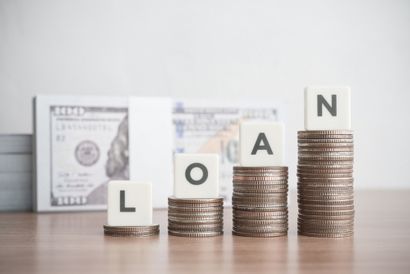By following some simple tips, you can ensure that you are getting the best deal possible on a personal loan. Be sure to shop around for the best interest rate, and don't be afraid to ask for a discount. You should also make sure that you are fully aware of all the fees associated with the loan, and try to pay off the loan as quickly as possible to avoid paying too much interest. Let's see some great tips you should know before considering a personal loan.
It's a good idea to have an idea of what type of loan you need before you start your search. If you know exactly what type of loan you are looking for, it will make the process go much smoother. It also helps if you know the interest rate range that you can qualify for. You should be able to find this information on banks' and lenders' websites. The most important thing to look for is the
lowest personal loan rates and compare them across sites. When shopping for a personal loan, don't limit yourself to searching with just one website or company.
There will be several offers available from various places, so use all resources at your disposal to find the best deal possible. Try not to base your decision solely on interest rates as there could potentially be fees attached with each offer that will inflate the overall cost.
2. Get Your Credit Score
Before applying for a personal loan, you should check your credit score to ensure it is high enough to get approved. If your score isn't where it needs to be, then you should try paying down some of your debts or just wait until you can get a better rate because of an increase in your credit rating.
A good rule of thumb is that if your score is below 700, it's best not to apply for any loans at all until it improves (or save up more money). You can purchase your credit score for around $15-20 per bureau via annualcreditreport.com which allows you access to both TransUnion and Equifax reports within 1-3 days.
3. Pay Off Your Loan ASAP
Many people don't realize that with personal loans, you are borrowing money to pay it back in full once your loan term is over. Be sure to pay off your entire balance when your original loan term is up to avoid accruing interest in the future. If you can afford it, try to pay more than what you initially agreed upon to shorten the length of your repayment schedule.
This will save you plenty of money on the interest rate and allow you to pay off the loan quicker than expected. It also gives you a one-time break from making monthly payments if additional cash is needed for important things like emergencies or large expenses.
4. Take Out The Loan
Once you are comfortable knowing your credit score, interest rates, fees, and loan terms, then it's time to sign the papers. Make sure that you only borrow the amount of money that you will be able to pay back in full on or before your scheduled payment date.
Also make sure that if there is any additional documentation required of you by the company (or if they ask for more personal information), do not hesitate to give it to them as this process puts their mind at ease and increases the chances of getting approved for a lower rate. If everything goes through well and your offer letter arrives in good condition, then congratulations!
You got yourself a great deal on a personal loan. This can be helpful financially as long as you make your payments on time (and don't borrow any more than necessary).
5. Avoid Monthly Fees
Since you are borrowing money, there is often an administration fee that will be collected up-front. This can range anywhere from $25-$100, but it's usually not much at all. Make sure to check the fine print (or ask) about what types of fees you may need to pay for this transaction to go through smoothly. If the lender is charging some sort of monthly fee on top of your interest rates, then try asking them why they do that and whether or not it's possible to waive that fee entirely.
You should also remember that if the creditor charges a higher interest rate normally due to past credit problems or issues with your income, you may be able to negotiate that interest rate.
6. Try To Get A Longer Loan
If you have a large expense worse than a monthly fee to pay, then consider asking the lender about getting a longer loan term. This would mean having a larger amount of money in your repayment schedule which could greatly help you if your expenses were high enough to justify it.
Just make sure that you can afford this type of payment and how much time it would take before the entire balance is paid off. In most cases, shorter loan terms with lower interest rates are preferred due to affordability issues.
7. Pay Off Unplanned Expenses
If you have recently uncovered that your expenses are higher than what you originally budgeted for, then it may be a good idea to get yourself some help. This could entail refinancing the house, selling some investments, or taking on additional jobs/hours at work if necessary until cash is on hand. If the unexpected expense is part of an annual event (such as your taxes), then consider getting them back-paid with this loan instead of borrowing the money.
Otherwise, even though it might seem tempting to take out new loans all the time when emergencies come up, try not to get into bad habits of spending everything and then borrowing more after that's gone too. You will end up never being able to pay back your debts and will be in a cycle of debt for the rest of your life.
Now that you read through these tips, hopefully, you have gained a greater understanding of how to get the best rates on personal loans. Over time, you will learn exactly when and where it is appropriate to take out such a loan as well as what type of terms and conditions work best for your specific situation. If you follow this advice, then not only should you be able to pay off your debt sooner than expected, but you can avoid those hefty interest charges.



